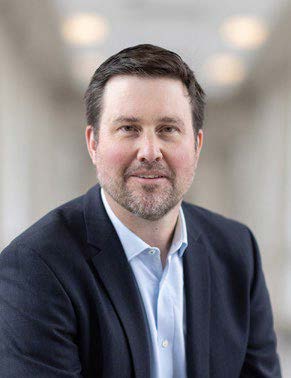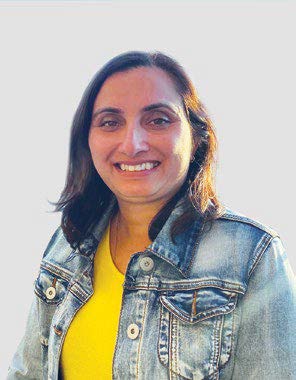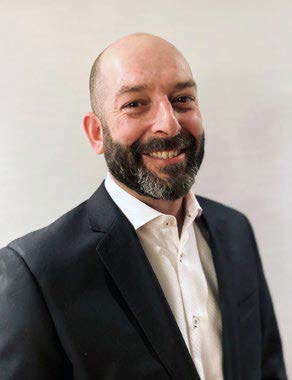 An investment in training gives physician leaders the skills and confidence to manage, lead teams and collaborate with partners—which ultimately contributes to and impacts health system change. Through SSC, physicians discover, explore, and expand their personal leadership abilities and individual paths, while helping to improve the health care environment for patients and providers. There are different types of leadership that have impact on the health care system, including formal leadership roles within a health authority, roles on committees and organizations, leadership roles with Doctors of BC and Joint Collaborative Committees, as well as physician leadership for grassroots-driven change.
An investment in training gives physician leaders the skills and confidence to manage, lead teams and collaborate with partners—which ultimately contributes to and impacts health system change. Through SSC, physicians discover, explore, and expand their personal leadership abilities and individual paths, while helping to improve the health care environment for patients and providers. There are different types of leadership that have impact on the health care system, including formal leadership roles within a health authority, roles on committees and organizations, leadership roles with Doctors of BC and Joint Collaborative Committees, as well as physician leadership for grassroots-driven change.
Recent conversations with three physicians from different perspectives who took SSC’s leadership training through Sauder Business School and have participated in other SSC and JCC initiatives and programs, revealed insights into their own development – including what they gained in the process, and their impact on influencing change.
All three physicians expressed some common insights:
- Leadership development is a personal path inspired by a desire to improve the health care system for patients.
- An investment in training and skills building can empower doctors to proactively lead patient care and system improvements.
- Leadership grows and builds momentum. It is not a solo journey but one that brings people together and shifts the culture to make meaningful change.
Watch the videos below as Drs Harris, Khurana, and Sernik discuss physician leadership.
1. Leadership Development
2. Training and Skills
3. Leadership Growth
Dr Devin Harris - Emergency physician
 |
Leadership positions:
|
"I learned how to build teams, create partnerships, and develop a charter and structure. I was also able to think in terms of how to embed this within the health authority leadership and governance."
Dr Devin Harris has a formal leadership role in Interior Health and Executive Medical Director, Quality, Patient Safety and Research, and holds many other leadership positions.
Dr Devin Harris has a formal leadership role in Interior Health as Executive Medical Director, Quality, Patient Safety and Research, and holds many other leadership positions. He knew he wanted to improve health care, and realized the importance of the leadership relationship to forging improvements within the system while undertaking a research fellowship at St. Paul’s Hospital in Vancouver.
“It became very evident to me that the delivery of care was dependent upon some aspects of leadership. If you wanted to institute best practices in care delivery, you had to understand complex systems and people to successfully implement them,” he says.
As Dr Harris’ career developed, so did his passion for leadership and influencing change. The training he gained through SSC’s sponsored Sauder School of Business was invaluable to his roles—along with the contacts he made with a network of other physicians from his cohorts, who are all now in leadership roles in across BC. He says it makes conversations and his job much
easier—and “improving patient care more feasible.”
“The Sauder experience solidified a lot of fragmented pieces of leadership training—it was almost like a finishing school for leaders,” he notes.
One of Dr Harris’s biggest leadership takeaways is that change only be successful if leaders are thoughtful about the people and culture they operate within. That includes patients and their families. Looking back on his 22-year career, he emphasizes that leadership is about setting culture and conditions so people can do their jobs well.
Dr Reena Khurana - Endocrinologist
 |
Leadership positions:
|
"If you have a problem with the health care system, you want to change it. Get a little bit of experience. You may like it, and you may do even bigger things."
Dr Reena Khurana has enjoyed a career as endocrinologist for sixteen years and currently practices in Surrey. In addition to sitting on the Shared Care joint collaborative committee, she initiated a diabetes management change project through various programs and initiatives of the Specialist Services Committee (SSC).
The leadership training, and skills, connections, and network she developed through those avenues helped Dr Khurana develop a successful patient pathway for hospital patients who need insulin how to take it safely, in order to get them discharged to home. She started the project as part of her Sauder training, and subsequently moved it through Facility Engagement, and SSC’s PQI program. She is now advancing the work in all the Surrey Hospital units – and beyond, through the SSC Spread initiative.
“At the time (of Sauder) my work was really at the embryonic stage and through the training. I really learned how to engage with the stakeholders, with the administration, physicians, nurses and other allied health care staff,” she notes.
Over the years, Dr Khurana has built collaborative connections with a number of colleagues to advance her projects as well as her career. She notes that the opportunities just keep on building. In addition to work on Shared Care, she is now part of the chronic disease network, and the Quality Forum committee. She says that her journey has opened her eyes up to understanding that ‘it is all about the patient.’
Dr Khurana encourages everyone whether in a leadership role or not to consider developing their personal leadership abilities through SSC programs.
Dr Julian Sernik - Orthopedic Surgeon
 |
Leadership positions:
|
"With these programs, it seems like the more I do, the more I want to do. It's very fulfilling."
Dr Julian Sernik is an Orthopedic Surgeon who held the Regional Medical Advisory Committee Chair role for the East Kootenay Region in Cranbrook. He is now in Vernon, concentrating on grassroots efforts.
He has always been inspired by the prospect of getting involved when he thinks he can make a difference. His interest in leading change led him to pursue the Sauder training, which was particularly helpful to his leadership position with Interior Health at the time. Through his training, leadership role, and subsequent involvement with administration, he was able to see how decisions are made
by health authority administrators, and who makes them, as well as understand different pressures.
“Suddenly so many decisions made sense and I found I was actually living in a logical world,” he notes. “For the most part, people are well-meaning and well trained, and just trying to do the best they can in difficult situations.”
He notes that an important insight from his training and experience is that it builds resiliency, and notes that failure is a learning experience, not a negative outcome.
“Leadership is about failing forward and that can be something we’re not used to as a clinician. I don’t fail forward when I go to the operating room, I succeed.” “The training teaches you to try multiple ways until you find a success and not let the failures and near misses stop you from continuing to be involved in trying to improve the system.”
Dr Sernik has expanded his involvement with the Specialist Services Committee to embrace more opportunities for successful health care improvements.



